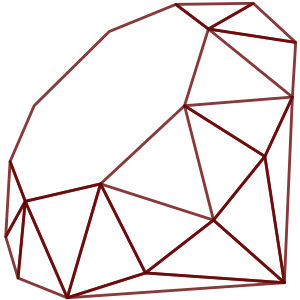
Idiosyncratic Ruby
Quiz

idiosyncratic-ruby.com
Documenting lesser-known features in Ruby
Ruby 2.6's Around the Corner
Section A
??..
(endless..ranges)
Endless Range Examples
(9..).take(3)
# => [9, 10, 11]
(?a..?z).zip(?a.ord..)
# => [["a", 97], ["b", 98], ["c", 99], …
Poking around with ranges (1)
(nil..)# =>
nil..
(nil..).cover?(nil)# =>
true
(nil..).include?(nil)# =>
TypeError (can't iterate from NilClass)
Poking around with ranges (2)
(9..).cover?(1/0.0)# =>
true
(9...).cover?(1/0.0)# =>
true
(9..) == (9...)# =>
false
Poking around with ranges (3)
"Rails vs Hanami"[9..]
and
"Rails vs Hanami"[9..-1]# =>
"Hanami"
(9..).size# =>
Infinity
(9..-1).size# =>
0
Section B
The Ruby standard library is currently
getting divided into individual gems
As of the current Ruby version,
how many standard gems do we have?
23 default gems
7 bundled gems
json, openssl, bigdecimal, fileutils, …
How many will be added in 2.6?
15
logger, irb, matrix, fileutils, …and bundler
How many libraries does the stdlib contain altogether?
107Section C
Misc fun stuff
How to produce this output? (1)
[1,2].____ { |x| [x, x**2] }
# => {1 => 1, 2 => 4}
How to produce this output? (1)
[1,2].to_h { |x| [x, x**2] }
# => {1 => 1, 2 => 4}
Before, we had to use Hash[]
How to produce this output? (2)
[*(1..20)_3]
#=> [1, 4, 7, 10, 13, 16, 19]
How to produce this output? (2)
[*(1..20)%3]
#=> [1, 4, 7, 10, 13, 16, 19]
The new Range#% is an alias to Range#step
How to produce this output? (3)
a = (7..9).each
b = Prime.each
a._____(b).take(7)
#=> [7, 8, 9, 2, 3, 5, 7]
How to produce this output? (3)
a = (7..9).each
b = Prime.each
a.chain(b).take(7)
#=> [7, 8, 9, 2, 3, 5, 7]
Merge multiple enumerators with Enumerable#chain / +
How to charge your Ruby with superpowers?
$ ruby -S rails server
# Rails is slow…
How to charge your Ruby with superpowers?
$ ruby --jit -S rails server
# Rails is around 2.6x faster!
(optimistic guess)
Powered by the new Just-In-Time compiler
Final Section
Ruby 2.6 allows constants to begin with all uppercased letters!
WHICH ONE OF THE CLASS NAMES IS VALID? (1)
class ℻
endclass Ätsch
end$ uniscribe "℻"
213B ├─ ℻ ├─ FACSIMILE SIGNWHICH ONE OF THE CLASS NAMES IS VALID? (2)
class Ŀogger
endclass ꓡogger
end$ uniscribe "Ŀꓡ"
013F ├─ Ŀ ├─ LATIN CAPITAL LETTER L WITH MIDDLE DOT
A4E1 ├─ ꓡ ├─ LISU LETTER LAWHICH ONE OF THE CLASS NAMES IS VALID? (3)
class Δ
endclass 🜂
end$ uniscribe "Δ🜂"
0394 ├─ Δ ├─ GREEK CAPITAL LETTER DELTA
1F702 ├─ 🜂 ├─ ALCHEMICAL SYMBOL FOR FIREWHICH ONE OF THE CLASS NAMES IS VALID? (4)
class 🅆
endclass 🅏
end$ uniscribe "🅆🅏"
1F146 ├─ 🅆 ├─ SQUARED LATIN CAPITAL LETTER W
1F14F ├─ 🅏 ├─ SQUARED WCWHICH ONE OF THE CLASS NAMES IS VALID? (5)
class 🡓
endclass 𐲄
end$ uniscribe "🡓𐲄"
1F853 ├─ 🡓 ├─ DOWNWARDS SANS-SERIF ARROW
10C84 ├─ 𐲄 ├─ OLD HUNGARIAN CAPITAL LETTER EC